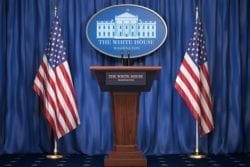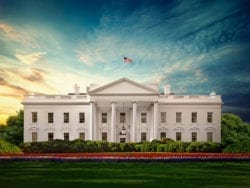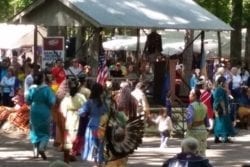Washington Update: Hot Summer for Washington Politics
Summer in Washington DC
Whew has it been a hot one in more ways than one!!
There is seldom agreement in the nation’s capital, but this summer, there is high agreement that President Biden did the right thing by stepping aside for a new presidential nominee. The New York Times/Siena College poll, Link on Thursday, July 25,– 87 percent of registered voters approved of his decision to drop out. Only 9 percent disapproved. But Democrats and Republicans don’t agree for the same reasons. Republicans have never had positive views of the President, and Democrats see it as the best strategic path to winning the election. And 79 percent of American adults say there should be age limits for elected officials, making Mr. Biden’s decision, which revolved around age, more popular than age limits themselves for elected offices. And in the most recent poll, 91 percent of Democrats nationwide approved of his exit (as did 86 percent of Republicans and 85 percent of independents). Link NY Times Article
But what is the path to the nomination for the President’s VP Kamal Harris? Candidates for the Democratic nomination will have until the evening of July 30 to show they have met the qualifying criteria, of at least 300 delegates, with no more than 50 from a single state. To date, no other likely candidate has stepped forward. On Wed, July 24, the party’s national convention set Aug. 1 as the date that delegates are likely to begin voting. If she remains unopposed, the voting will begin online on Aug. 1. If she has a challenger, the voting could begin by Aug. 7. No matter what formally happens, it is expected the opposition party will challenge the process.
The Democratic Convention, in Chicago will run from Aug 19 to Aug 22, and is expected to draw 50,000 people with 5000 delegates. Ironically, when Chicago hosted the 1968 Democratic National Convention, it was also the last time the party was forced to pick a presidential candidate because its incumbent (Lyndon Johnson) had opted not to seek reelection. It is anticipated that this summer in Chicago, will have equal controversy during this unusual presidential election season. Link Washington Post Article
Vice President Harris has been quickly endorsed as the nominee-apparent, but Democrats still must make a formal nomination. The Democratic National Convention will serve as the platform for the formal announcement of the party’s president and vice-president nominees. Meanwhile both parties are regrouping on their national strategies with the changing dynamics since President Biden stepped aside. Harris, in a surprising short period of time has raised over 200 million, since July 21st. And even before her official nomination, Vance, the Republican VP candidate, has called the nomination of the younger Harris a political sucker punch, and he has already begun his spin of Harris as far more liberal than Biden. It no doubt will be an election season like we haven’t seen in recent times.
Yakama Wildfire Decision
On June 3, 2024, the U.S. Court of Federal Claims issued its decision on the Yakama Nation’s wildfire case, finding a breach of trust and unlawful Fifth Amendment Takings by the United States. In 2015, the Cougar Creek Fire spread into the Yakama Forest, causing more than $10 million in alleged damages. The Tribe claimed that the Federal Government breached its trust duties to protect the Yakama Forest, by failing to provide appropriate maintenance. Additionally, the Tribe argued that the Government’s failure to devote resources to fight wildfires constituted a compensable taking of Tribal land under the Fifth Amend Takings Clause.
Using the two-step test established in Navajo II, the Court found there was a breach of duty under the established trust relationship. Under the two-step test, a tribe must first identify a specific trust duty that the Federal Government owes them, then the tribe must demonstrate that the Federal Government breached this specific trust duty, resulting in harm to the tribe. The Court found that the government did have an explicit duty to prevent wildfire risk under the National Indian Forest Resources Management Act. Further, the damaged caused by the Cougar Creek fire was exacerbated by the condition of the Yakama Forest, which was a result of the government’s mismanagement.
Under the Ridge Line test, the Court found allowing slash piles to accumulate in the Yakama Forest constituted a taking. In Ridge Line it was established that in order to constitute a taking, the government action must be a direct, natural, and probable cause of the consequences. Further, a failure to act is only a taking when there was a duty to act established by a prior government action. Therefore, the Court found the Federal Government’s lack of general forest management and failure to reallocate firefighting resources did not constitute a taking, limiting the ruling to the build up of slash piles on Tribal land. Link Turtle Talk
Supreme Court Overturns Chevron Doctrine
On June 28, 2024, the U.S. Supreme Court overturned its decision in Chevron v. Natural Resources Defense Council, ending four decades of judicial deference to federal agency interpretations of ambiguous statutes. The ruling shifts power towards increased judicial scrutiny of agency decisions. Under Chevron, agencies were given deference when a statute was ambiguous so long as their decisions were based on a permissible interpretation of the statute in question. Agencies may now face more frequent legal challenges, which could slow the regulatory process and prompt Congress to draft clearer legislation to reduce ambiguity and ensure agency actions align with legislative intent.
This ruling does not invalidate the Indian canon of construction, which requires ambiguous statutes to be construed in favor of Indian tribes. However, increased scrutiny of agency decisions could complicate the implementation of tribal policies and programs, underscoring the need for precise legislative language and highlighting the judiciary’s role in protecting tribal interests within federal law. Courts may now rely more heavily on Skidmore deference, which requires courts to defer to a federal agency’s interpretation of an ambiguous statute so long as the agency’s reasoning is persuasive.
House Natural Resources Hearing on Clean Carcieri Fix
On June 26, 2024, the House Natural Resources Subcommittee on Indian and Insular Affairs held a Legislative Hearing on H.R. 1208, a clean Carcieri fix amendment to the Indian Reorganization Act (IRA) and H.R. 6180, a Carcieri fix for the Poarch Band of Creek Indians.
Representative Tom Cole (R-OK) introduced H.R. 1208 which would amend the IRA, removing the 1934 federal jurisdiction requirement and ensuring decisions are immune to Carcieri challenges. Subcommittee Chairwoman Harriet Hageman (R-WY) highlighted that H.R. 1208 aims to amend the IRA to allow the Secretary of the Interior to take land into trust for any federally recognized Tribe, noting potential impacts on local governments. Katheryn Isom-Clause from the Department of the Interior and Tribal leaders Hon. Marshall Pierite, Chairman of the Tunica-Bronx Tribe of Louisiana, and Hon. Stephanie Bryan, Tribal Chair of Poarch Creek Indians, supported the Bill, emphasizing the need for a universal solution to benefit all tribes. In contrast, Hon. David Rabbitt, on behalf of the National Association of Counties, expressed concerns about the fee-to-trust process and its local impacts, suggesting more government involvement and an open review process.
Subcommittee Chairwoman Hageman and other members clarified that H.R. 1208 does not affect gaming applications but ensures equal application of the fee-to-trust process for all tribes. Representative Jerry Carl (R-AL) introduced H.R. 6108, which would resolve Carcieri related litigation issues for the Poarch Band of Creek Indians, and Isom-Clause affirmed that both Bills would restore the fee-to-trust process status quo and reduce litigation. Link House Resources Committee
BIA Seeking Consultation on Public Law 280
The Bureau of Indian Affairs is seeking consultation with Tribal Nations in states where Public Law 280 mandates criminal jurisdiction over crimes committed on tribally-owned land to the state. The goal is to achieve a better understanding of the budgetary needs of each Tribal Nation’s justice system, along with hearing comments, concerns, and recommendations regarding state jurisdiction under Public Law 280 on Tribal lands. Link to register
Indigenous Voices of the Americas: Celebrating the National Museum of the American Indian
From June 26 to July 1, 2024, the Smithsonian’s annual Folklife Festival focused on the National Museum of the American Indian and highlighted the traditions of Indigenous peoples. “The DinéTah Navajo Dancers took to the Four Directions Stage, presenting traditional dances that are linked with seasonal and ceremonial life. The name DinéTah, meaning ‘among the people,’ is the name for the Navajo homeland in the Four Corners region.”




